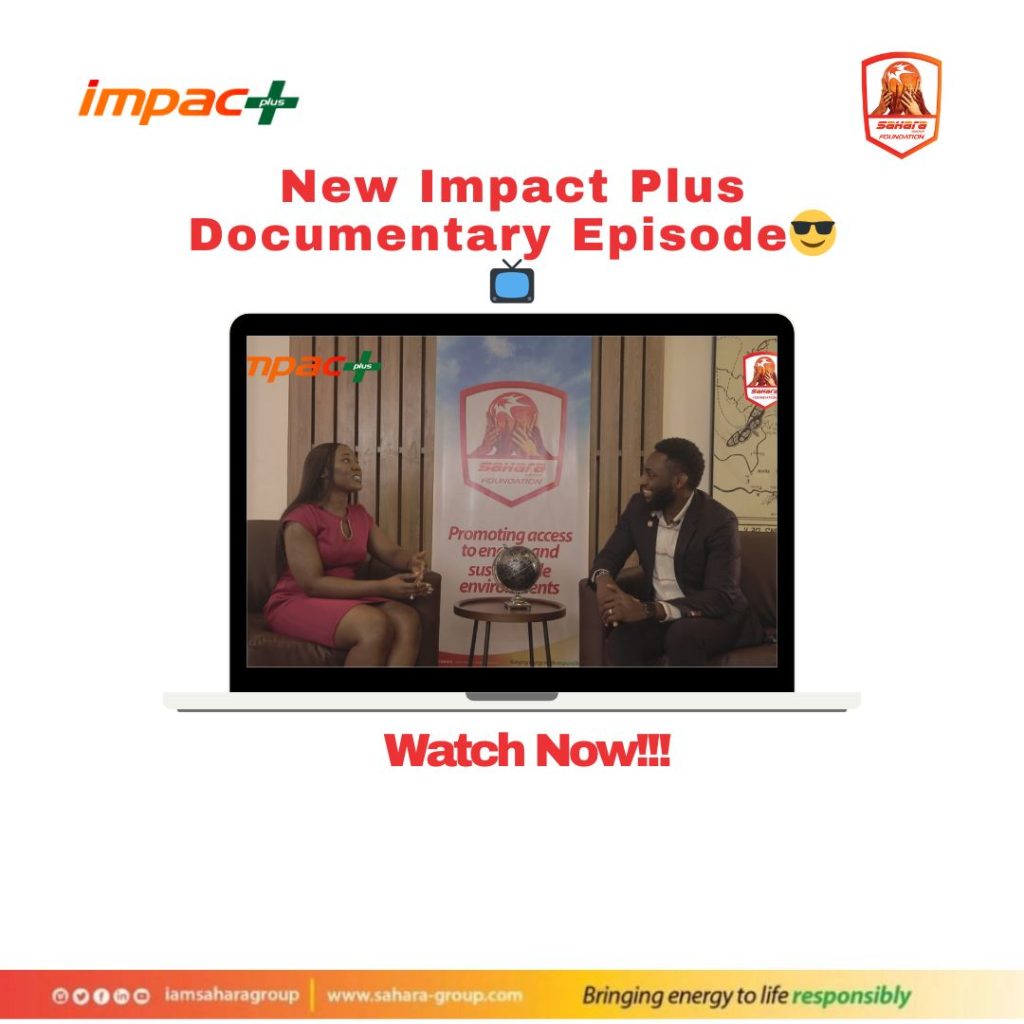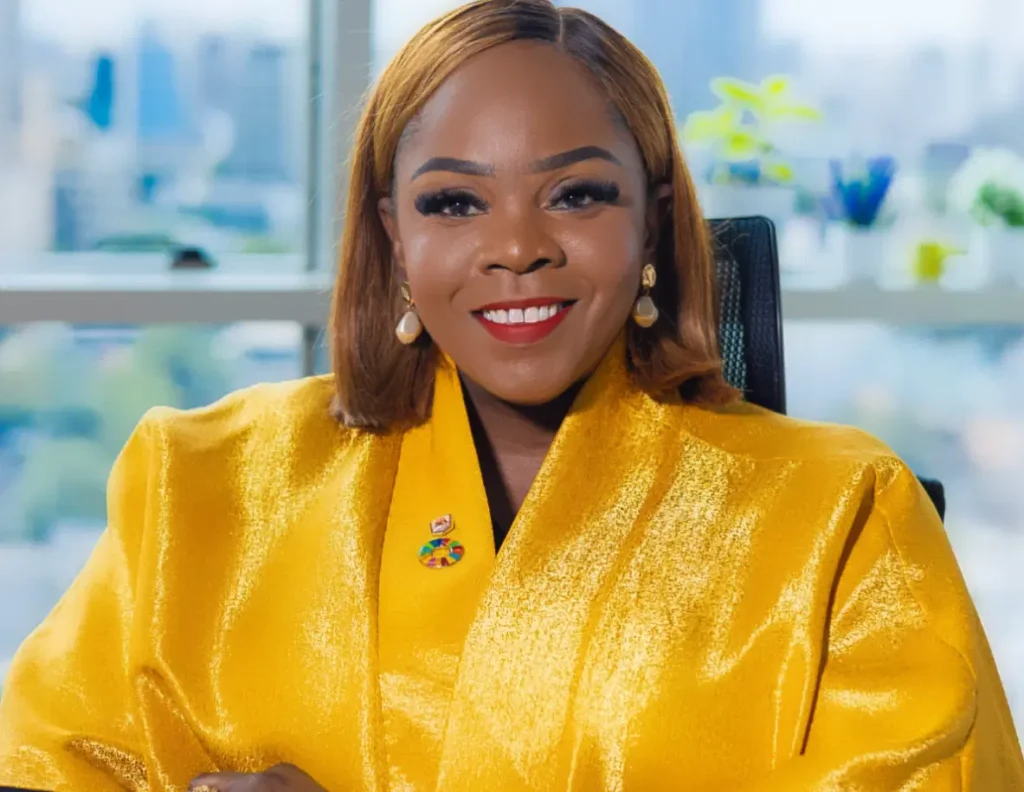
Chidilim Menakaya, Director of the Sahara Group Foundation, speaks on the Foundation’s bold commitment to building sustainable, thriving communities across Africa and beyond. In this interview, she spotlights transformative programmes that empower changemakers and EXTRApreneurs, while shedding light on the Foundation’s recent evolution and renewed strategic focus. Excerpts below:

Sahara Group is fundamentally positioned to connect the growing demand for energy with sustainable supply solutions, while serving as a catalyst for transformative partnerships that advance development in emerging economies.
We see sustainability not just as a corporate responsibility, but as the engine for continuous innovation and progress—shaping how businesses and societies evolve through new ideas, inclusive systems, and future-focused solutions.
The Sahara Group Foundation is the platform through which Sahara Group channels its social sustainability ambitions into real-world impact. Our mandate is clear: to positively transform lives and livelihoods by translating global development goals into practical, life-changing experiences that are relevant to everyday people—from professionals to the average Joe on the street.
Our interventions are firmly rooted in building sustainable communities through EXTRApreneurship, empowering individuals and communities through innovation, entrepreneurship, and strategic collaboration. These priorities guide everything we do, as we work to build a future where opportunity, innovation, and prosperity are shared across communities.
We envision Sahara Group Foundation as a catalyst for change, unlocking potential, enabling resilience, and building platforms for generations of changemakers to thrive. We are not just funding projects; we are fuelling possibilities that will outlive us.

The Foundation’s recent strategic shift was driven by a thoughtful reflection on our journey to date, the rapidly evolving global socio-economic landscape, and the need to scale our impact in more intentional and sustainable ways. We recognized that staying relevant and effective requires not only alignment with global development priorities—particularly the UN Sustainable Development Goals—but also a deep responsiveness to the unique realities of the communities we serve.
This evolution has led us to sharpen our focus on building sustainable communities through EXTRApreneurship—our belief in the power of individuals and communities to drive transformative change. It also inspired a refreshed identity that embodies our renewed commitment to innovation, collaboration, and inclusive impact. Today, our programmes are more targeted, scalable, and outcomes-driven. We are deepening our investment in strategic partnerships, empowering changemakers, and using data to inform decisions and track progress. With this renewed strategy, the Sahara Group Foundation is better equipped to act as a dynamic, forward-thinking catalyst for sustainable change.
With the renewed emphasis on building sustainable communities across your business locations through what you call EXTRApreneurship, what key factors do you believe are essential to successfully advancing this mandate through your various initiatives?
Advancing our mandate of building sustainable communities through what we call EXTRApreneurship requires a deliberate, people-centered approach that blends innovation, collaboration, and deep community engagement. At its core, EXTRApreneurship is about unlocking the potential within individuals and communities to become active drivers of development—not just beneficiaries. To make this vision a reality, it is essential that we remain closely connected to the unique needs and aspirations of the communities we serve. This means co-creating solutions with local stakeholders to ensure that our interventions are relevant, inclusive, and sustainable.
Strategic partnerships also play a critical role. We know we cannot work in isolation, which is why we actively collaborate with our internal stakeholders within the Sahara Group , including passionate volunteers, government agencies, development organisations, and private sector partners, to amplify the scale and impact of our initiatives. Equally important is our focus on capacity building—we invest in programmes that equip people with the skills, knowledge, and tools to transform their circumstances and create positive ripple effects within their communities.
Ambidexterity and innovation are also key enablers. The challenges we are addressing—whether around business transformations, environmental sustainability, or community empowerment—are constantly evolving. We must remain responsive and forward-thinking, always seeking better ways to drive impact. And of course, we hold ourselves accountable by measuring the tangible outcomes of our work, not just in terms of reach, but in the quality-of-life improvements we help create.
Lastly, we ensure that all our efforts are aligned with global development goals, particularly the United Nations Sustainable Development Goals (SDGs). This gives our work both local relevance and global resonance. Ultimately, EXTRApreneurship is about fuelling a movement, empowering everyday people to be changemakers, and in doing so, helping to build resilient, sustainable communities across Africa and beyond.
The Foundation places strong emphasis on building sustainable communities and environments. How are initiatives such as MADAA, Sahara Go-Recycling, the Sahara Impact Fund, and the Sahara Community Impact Project contributing to the rise of more resilient and sustainable environments across your host communities?
At Sahara Group Foundation, building sustainable communities and environments is not just a priority; it is at the heart of everything we do. We believe that sustainability must be inclusive, people-driven, and rooted in the everyday realities of the communities we serve. Our various initiatives are all designed to inspire long-term impact by addressing real challenges through innovative, community-led solutions.

Making A Difference Across Africa (MADAA) project is a bold, purpose-driven programme that identifies and supports early-stage African innovators, inventors, researchers, and entrepreneurs who are developing practical, homegrown solutions to real-world challenges using locally sourced and natural resources. These are individuals creating impactful businesses that address socio-economic and environmental issues right from within their communities.
The long-term vision for Making A Difference Around Africa (MADAA) is to become a catalyst for grassroots innovation and a driving force within Africa’s entrepreneurial ecosystem. At its core, MADAA seeks to identify and support early-stage innovators, inventors, entrepreneurs, and researchers who are solving real-world problems using locally sourced and naturally available resources. These individuals often operate outside traditional funding and support structures, yet their innovations are deeply rooted in the realities of their communities and highly scalable when given the right platform.
We believe MADAA will reshape the narrative around African innovation—moving it from the margins to the mainstream by elevating unconventional solutions that are practical, sustainable, and community-focused. Over time, we expect the initiative to create a strong pipeline of home-grown, environmentally conscious enterprises that contribute to economic growth, job creation, and sustainable development across the continent.
Additionally, by showcasing these stories and providing a support framework that includes business advisory, visibility, and funding, MADAA will inspire more young Africans to see entrepreneurship as a viable and purposeful path, not a fallback option. It will help demystify innovation, proving that impactful ideas don’t always have to come from formal labs or tech hubs, they can come from farms, local workshops, or community centres.
Ultimately, MADAA is about creating a ripple effect, where empowered innovators go on to empower others, building a more resilient, self-sufficient, and proudly African innovation ecosystem from the ground up.

The Sahara Go-Recycling Project was born out of a clear recognition of one of the most pressing environmental challenges faced by many urban and peri-urban communities across Africa, poor waste management, particularly the proliferation of plastic waste. This challenge has far-reaching consequences, including clogged drainage systems, increased flooding, polluted waterways, degraded ecosystems, and threats to public health and livelihoods.
For us at Sahara Group Foundation, it was clear that any meaningful contribution to sustainable development had to address this urgent issue, not just through awareness, but through action.
The Sahara Go-Recycling initiative was therefore launched as a sustainable, community-driven intervention to promote environmental consciousness, drive behavioural change, and empower people to see waste not as a problem, but as an opportunity. By strategically establishing recycling exchange hubs across our host communities, starting in Lagos State, we have created a platform where residents and communities can bring recyclable materials in exchange for tangible benefits, such as monetary compensation or other tangible benefits via a points-based system.
What makes this initiative powerful is its multi-dimensional impact: it helps clean up the environment, promotes a circular economy, creates jobs, supports livelihoods, and fosters a culture of responsibility and sustainability. Since its launch in 2022, over 617,000 kg of waste has been recovered through 14 active hubs in Lagos alone—a clear testament to both the scale of the challenge and the potential of this solution.
More than anything, Sahara Go-Recycling project is about transforming mindsets. It’s about embedding sustainability at the community level and showing that when people are empowered and incentivized, real change is possible. As we continue to expand this model beyond Lagos State, we see it becoming a blueprint for how communities can turn environmental challenges into engines for economic and social transformation.

The fourth cohort of the Sahara Impact Fund (SIF) Fellowship, set to launch in 2025, represents a significant evolution of the programme as we deepen our commitment to empowering young African changemakers. This new phase builds on the strong foundation laid by previous cohorts, where we supported over 100 social innovators with funding, mentorship, and entrepreneurial training to scale impactful solutions to critical social and environmental issues.
One of the key highlights of the upcoming cohort is the increased funding pool, with selected Fellows eligible to receive up to $30,000—a significant step up from the $5,000 seed grants offered in earlier cohorts. This increase reflects our intention to support more mature, scalable solutions with the potential for long-term impact across communities and sectors.
Additionally, the fourth cohort will place greater emphasis on impact measurement, sustainability, and strategic partnerships. We are refining our selection process to ensure that Fellows not only have great ideas but also demonstrate the capacity to execute, adapt, and grow. The programme will also feature a more robust mentorship structure and curated masterclasses led by not just sector experts, investors, and thought leaders across the continent, but the internal pool of experts within Sahara Group.
Most importantly, the SIF Fellowship will continue to embody our belief in EXTRApreneurship, the idea that every individual has the power to drive meaningful change. The Fellows selected will be empowered to act as catalysts in their communities, leveraging innovation, collaboration, and entrepreneurship to address local challenges in a sustainable way.
Ultimately, this fourth cohort represents not just continuity, but growth. It’s about scaling what works, learning from past experiences, and preparing a new generation of leaders to transform their communities and the continent through purpose-driven innovation.
What does success look like for SCIP, and how will it be measured once fully launched?
Success for the Sahara Community Impact Project (SCIP) is rooted in our vision to foster inclusive economic growth and empower communities through sustainable, locally relevant interventions. At its core, SCIP is about building business hubs that tap into the unique economic strengths of our host communities, essentially enabling communities to thrive from within, using their existing assets, talents, and entrepreneurial potential.
Once fully launched, success will be measured by several key indicators. First and foremost is economic impact, this includes the number of viable businesses established or supported through the hubs, the increase in local income generation, and the level of job creation resulting from SCIP activities. We want to see thriving micro and small enterprises emerging from these hubs that can sustain themselves and contribute meaningfully to the local economy.
Another important metric of success is community ownership and participation. SCIP is designed to be a community-led initiative, so success means seeing strong local engagement, not just as beneficiaries, but as co-creators and long-term stewards of the programme. The degree to which the project is embraced and driven by the community will be a strong indicator of its relevance and long-term sustainability.
We also intend to track the capacity-building outcomes, how many individuals have gained relevant business skills, financial literacy, or entrepreneurial training that allows them to start or scale a business confidently. The quality and relevance of this capacity-building will play a significant role in shaping outcomes.
And finally, success for SCIP will be defined by its scalability and replicability. If the pilot communities demonstrate measurable progress and resilience over time, it sets the stage for replication across other locations within and beyond our business footprint. In that sense, SCIP is not just a project; it’s a model we hope can influence how corporate social investments are done more sustainably across Africa.
In summary, SCIP’s success will be seen in thriving local businesses, empowered individuals, active community participation, and a long-term shift toward sustainable, community-driven economic development

At Sahara Group Foundation, we define impact as the ability to catalyse real, sustainable transformation in the lives of individuals and the communities we serve. Our approach has always been grounded in the belief that long-term development must be inclusive, community-driven, and rooted in local realities.
Through our programmes, we are championing sustainable environments, grassroots innovation, entrepreneurship, and youth empowerment. A good example is the Sahara Impact Fund (SIF), which has equipped over 100 young African changemakers with seed funding, mentorship, and entrepreneurial training. These individuals are now building solutions that address pressing socio-economic challenges and creating value within their communities.
Our STEAMers programme is another critical pillar—fostering curiosity and creativity in young students by enhancing their skills in science, technology, engineering, arts, and mathematics. It’s a deliberate investment in Africa’s future innovators, helping prepare them to navigate and shape the global economy.
Equally, through our Sahara Go-Recycling initiative, we are actively promoting environmental responsibility while creating economic opportunities. The project has removed over 600,000 kg of waste from the environment and established 14 recycling hubs in Lagos. More than just waste collection, it’s a community-led movement that rewards people for sustainable behaviour and drives a circular economy that benefits all.
Projects like Making A Difference Around Africa (MADAA) and the upcoming Sahara Community Impact Project (SCIP) further reflect our commitment to enabling locally driven enterprise and social impact. MADAA, in particular, identifies and supports inventors and entrepreneurs who are solving real-world problems using local, natural resources. It’s about encouraging Africans to see entrepreneurship not as a fallback, but as a viable and impactful first-choice career.
Whether through community empowerment, or environmental sustainability, the overall effect of our work has been clear: we are empowering individuals, strengthening community resilience, and fostering a culture of self-determination and sustainable progress. That is the legacy we are building—one project, one partnership, and one community at a time.

Sahara Group’s rebirth of the Heart of Service movement is a powerful expression of our belief and culture that sustainability is a shared responsibility—one that must be embraced not just at the leadership level, but across every layer of our organization. This initiative centres on volunteering by Sahara employees who we call the Extra Gang and reflects our deep-rooted culture of collective impact and purpose-driven service.
With a workforce of over 6,000 people across the Group, the potential ripple effect of individual and collective action is enormous. The Heart of Service calls on every employee of Sahara Group to understand and embrace the power they hold to make a sustainable difference —not only through their professional roles, but also through meaningful community engagement.
At Sahara, we have come to see sustainability as a mindset—one that demands a conscientious approach to every decision, action, and opportunity. That is why the term “responsibly” has become part of our everyday vocabulary. It represents a deliberate, internalised commitment to weigh every project and initiative not just by profit or output, but by long-term impact and legacy.
This movement is more than just volunteering—it is about nurturing a culture where service becomes second nature, where our people are inspired to give back, and where we continue to build an organisation that leads by example. The Heart of Service is Sahara’s way of ensuring that our corporate footprint is not just impactful, but positively transformative.
Credit: www.vanguardngr.com
May 2, 2024
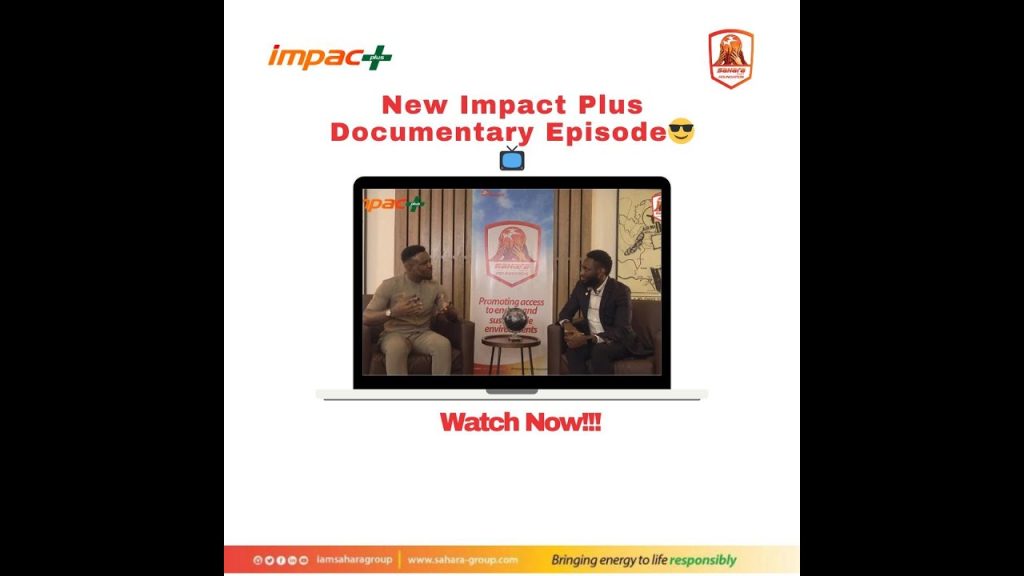
April 4, 2024
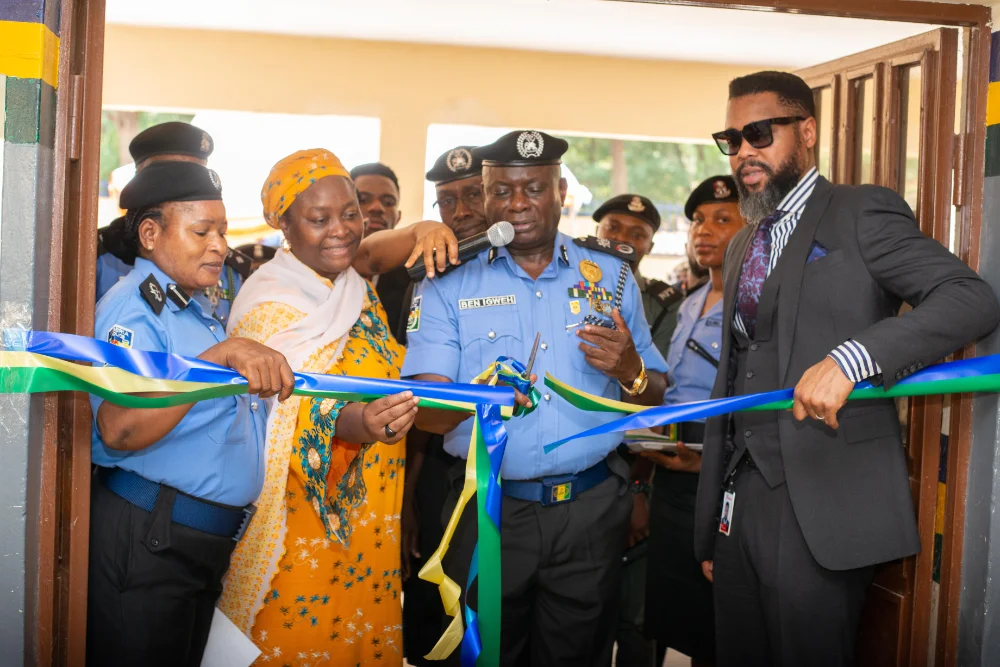
April 4, 2024
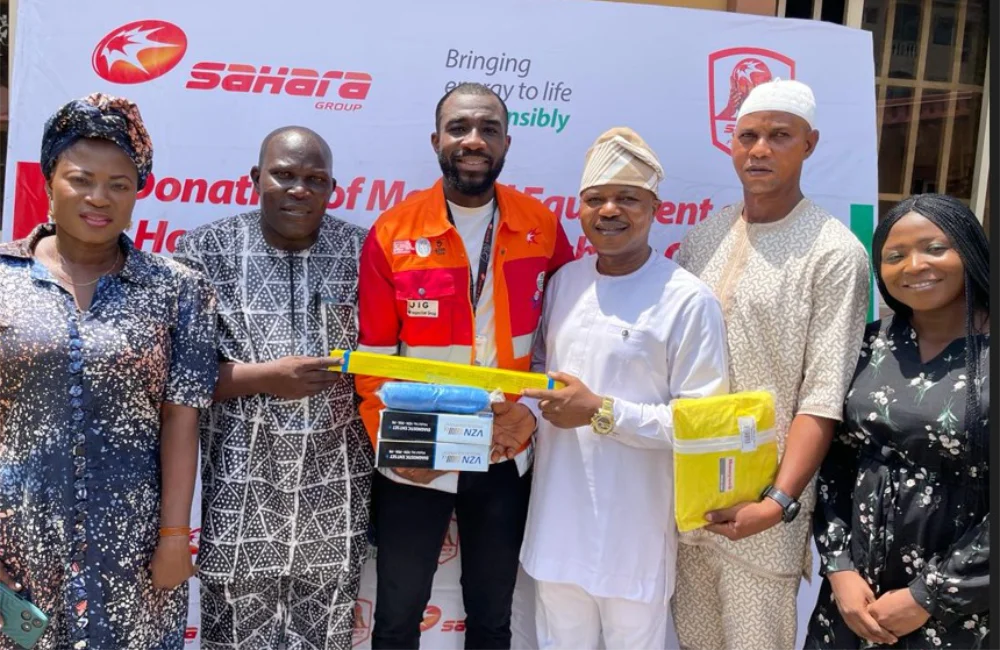
April 4, 2024
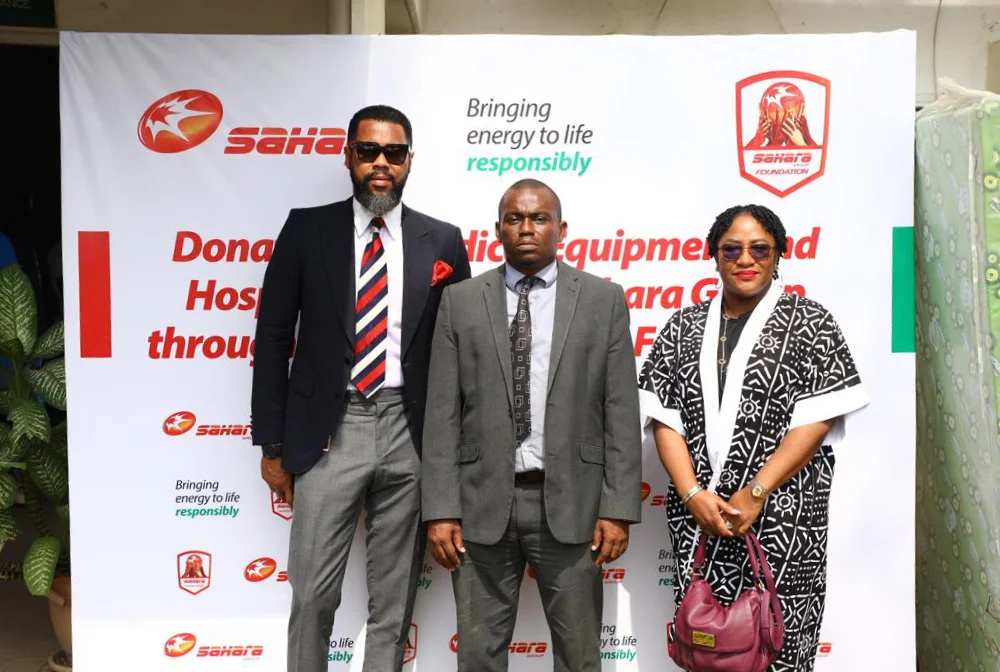
March 28, 2024
